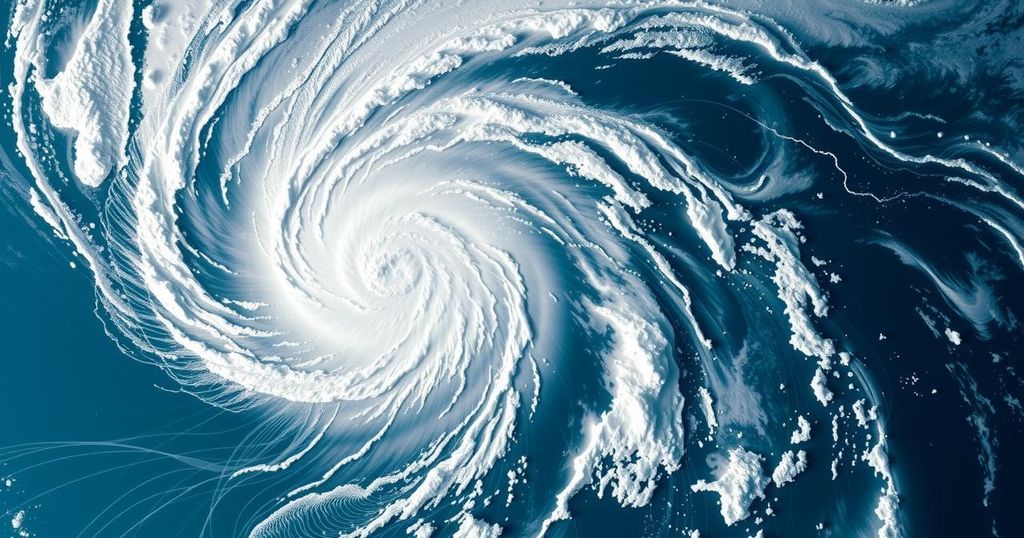Cyclone Chido: A Consequence of Climate Change Intensification
Scientists from Imperial College London have determined that climate change intensified Cyclone Chido, leading to a 40% higher likelihood of such storms in 2024 compared to pre-industrial times. Chido was the most damaging cyclone to hit Mayotte in 90 years, classified as a Category 4 storm, with fears of a rising death toll. The research suggests that wind speeds near the landfall site increased significantly due to global warming.
A recent study by scientists from Imperial College London has determined that climate change significantly intensified Cyclone Chido as it approached the Indian Ocean archipelago of Mayotte. The research asserts that cyclones of Chido’s magnitude are now 40 percent more likely due to the warmer climate of 2024 compared to pre-industrial times. When Cyclone Chido made landfall, it became the most destructive cyclone to strike Mayotte in nearly a century, devastating makeshift homes in this impoverished overseas territory of France.
Categorized as a Category 4 storm on a five-point scale, Chido’s impact was particularly severe in a region where approximately one-third of the residents inhabit inadequate housing structures. Although the complete extent of the disaster remains unclear, officials have grave concerns that the death toll could eventually reach into the thousands. The researchers utilized an advanced computer model to simulate tropical cyclones, evaluating the potential influence of global warming on wind speeds and storm intensity, which are generally limited by a lack of empirical data.
Their findings suggest that wind speeds in the vicinity of Chido’s landfall have increased by an average of three miles per second when compared to conditions before the widespread use of fossil fuels began. The study indicates that climate change effectively increased Cyclone Chido’s intensity from Category 3 to Category 4. While France’s meteorological authority has refrained from definitively linking Chido’s potency to climate change, they acknowledge that the rise in ocean temperatures—attributed to human activity—has contributed to more aggressive storms.
Mayotte bore the brunt of Cyclone Chido, with Meteorological France explaining that the cyclone’s impact was primarily a result of its trajectory over the island. Current climatic conditions are nearly 1.3 degrees Celsius warmer than pre-industrial averages, which scientists argue leads to a greater frequency of extreme weather events. Warmer air retains more moisture, and higher ocean temperatures result in increased evaporation, consequently enhancing the environmental conditions that fuel tropical storms.
The relationship between climate change and the intensification of tropical cyclones has become a pressing topic of study among meteorologists and climate scientists. Cyclones, which are characterized by strong winds and heavy rainfall, tend to gain strength from warm ocean waters and moist air. As global temperatures rise due to human-induced climate change, researchers observe that the frequency and severity of such storms may increase. The case of Cyclone Chido serves as a recent example of this phenomenon, illustrating how altered climatic conditions can lead to more powerful and destructive weather systems.
In summary, Cyclone Chido exemplifies the rising threat of intensified tropical storms fueled by climate change. The study from Imperial College London highlights how warmer ocean and atmospheric temperatures contribute to increased cyclone likelihood and intensity. This disaster underscores the urgent need for further research on the impacts of climate change on severe weather patterns, especially as communities unprepared for such events are disproportionately affected.
Original Source: www.barrons.com




Post Comment